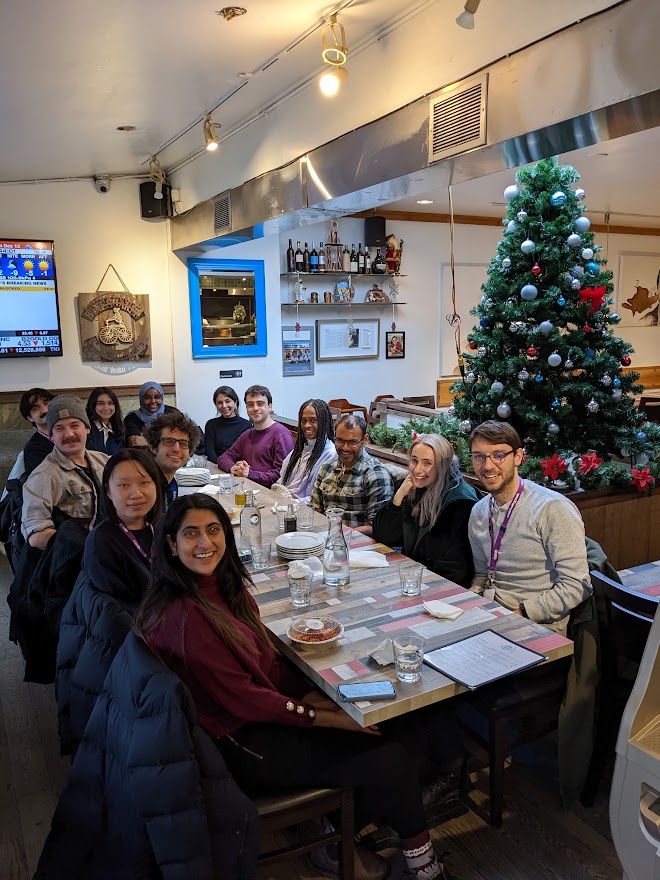TripLab 2022 Year in Review
2022 marked the lab’s 4th year. A few words and phrases that defined the year: “the new normal”, “return to on-site work”, “out sick with __”, “i’m interviewing for a job / i got a job / actually i start next week”, “we are thrilled to announce…”, “unfortunately myself and other editors have decided…”
Moving towards a post-pandemic lab
We started going to conferences in person again this past year. I absolutely loved going to the Canadian Association for Neuroscience (CAN) annual meeting (conveniently, just down the street in Toronto), the SFN meeting in San Diego, and others. It was so great to see old friends, like Krishnan Padmanabhan, and finally meet many of our collaborators in person, like Shernaz Bamji’s lab at UBC or Angelika Lampert’s lab at Aachen, Germany. CAN was especially meaningful for me because it was the first time that I really talked with a number of other PI colleagues since the start of the Pandemic in 2020. I can’t express how much I enjoyed getting to talk to colleagues, see posters, and chat over tacos and ramen and beers. I learned that most of my colleagues’ labs were mostly back in person and this provided the kick in the pants I needed to move more of my lab interactions back in person as well.
Looking back, I think moving the lab’s interactions back in person from fully remote has been a bit of a mixed bag. We do most of our big group meetings, like lab meetings and journal clubs, in a hybrid fashion where about 2/3 to 3/4 of the lab attends in person and the remainder attends via zoom. This works ok usually but I feel like the discussion just isn’t as good in a hybrid format - it seems better when everyone is remote or everyone is in person. Also, AV issues continue to be a challenge - our futuristic neuroinformatics centre has invested in a lot of really good AV equipment but it doesn’t always work and takes time to set up beforehand.
I still think having lab interactions in person is better than not. Doing stuff in person (and trying to schedule things where as much of the lab is in at the same time) contributes to natural interactions between lab members. And scheduling regular lab socials (board game night, karaoke, etc.) has been really great too. I look forward to pandemic-related restrictions continuing to be lifted, but I also recognize (and benefit from) working from home a couple days a week.
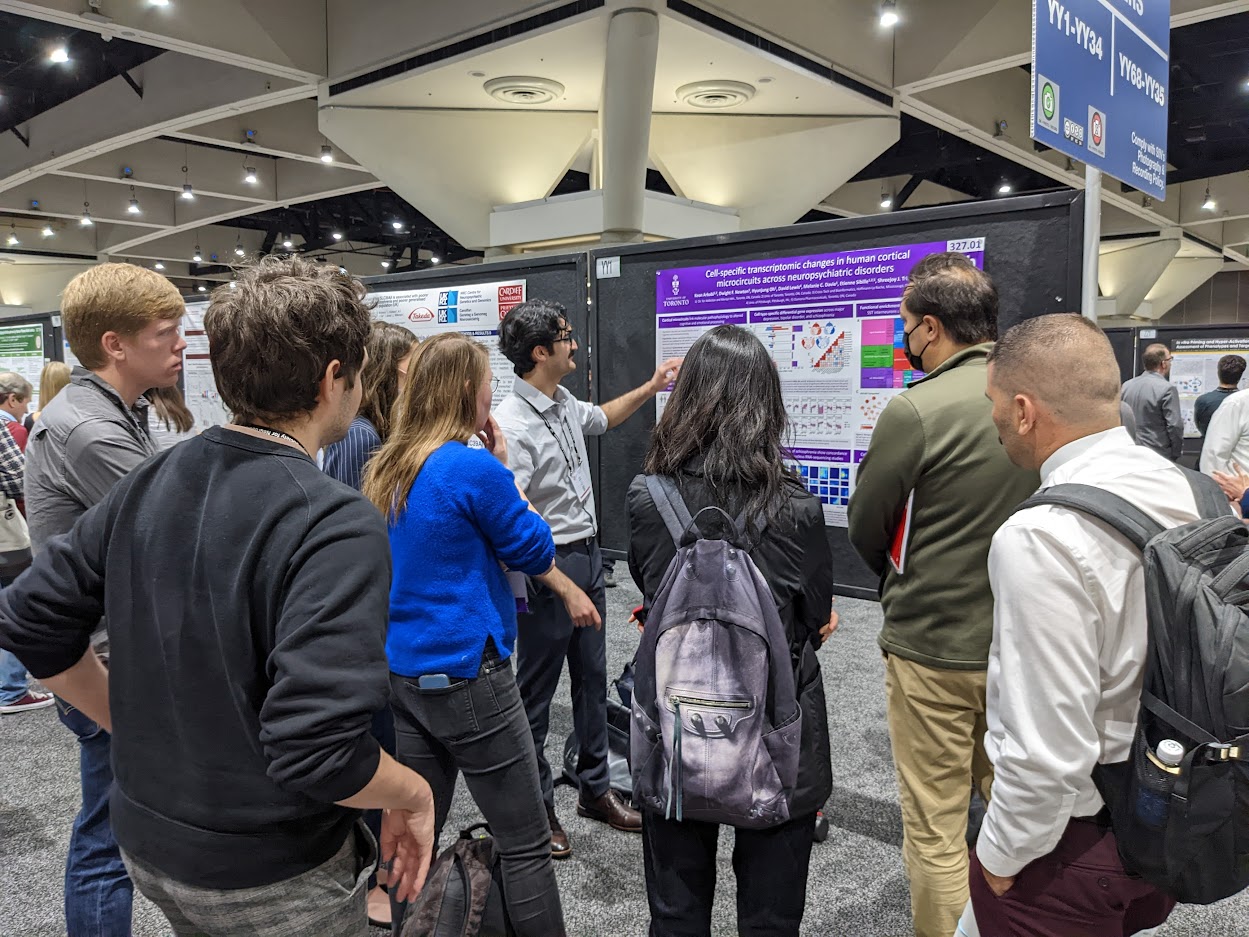
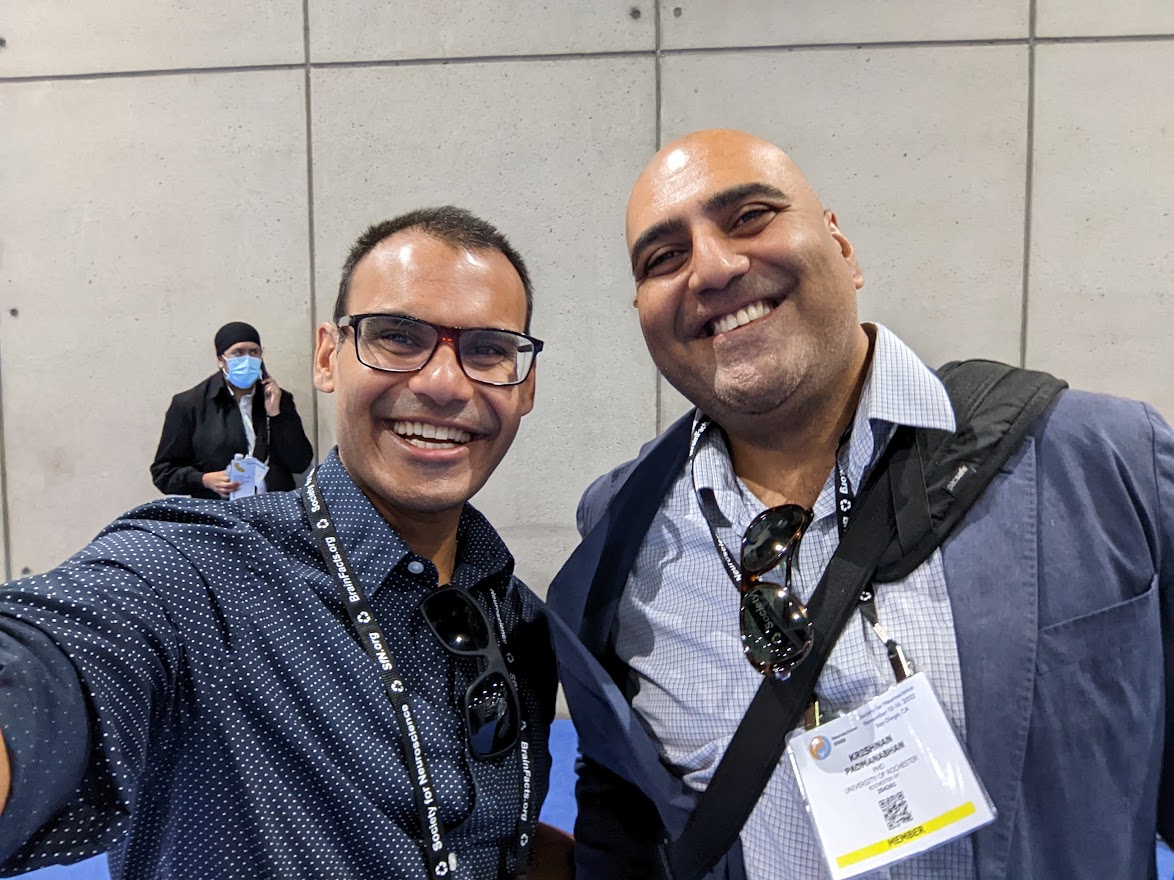
Celebrating our lab’s wins
The most memorable moments over the last year were big achievements by my trainees. Sonny, who as my lab’s first hire helped me build up the lab from scratch, was hired into a staff bioinformatician role at Genentech/Roche. Isabel graduated with her masters and moved onto a data science lead role at a local biomedical start up. And Michael won a super-prestigious Banting post-doctoral fellowship and is now on the academic job market. It’s brought me so much joy to celebrate my awesome people and I’m so proud of these and the small daily wins of my lab.
We did SO MUCH science over the last year. It boggles my mind how much we submitted, published, and (unfortunately) how much remains on my desk waiting for my feedback and attention. A few things that I’m especially proud of: Keon and January’s microglia in Patch-seq work, which was even profiled in a piece in Nature Methods. Michael published a couple of neat papers on using mutational constraint to help prioritize causal genes in large genetic deletions and near GWAS loci. A final highlight is Micaela and Sonny’s paper on loss of SST cells and IT pyramidals cells in Alzheimer’s. And we have a ton of stuff in the pipeline, including a lot of work with cell type-specific splicing, cell disorder-related differential expression, polygenic scores, Patch-seq, etc that I look forward to sharing over the coming year.
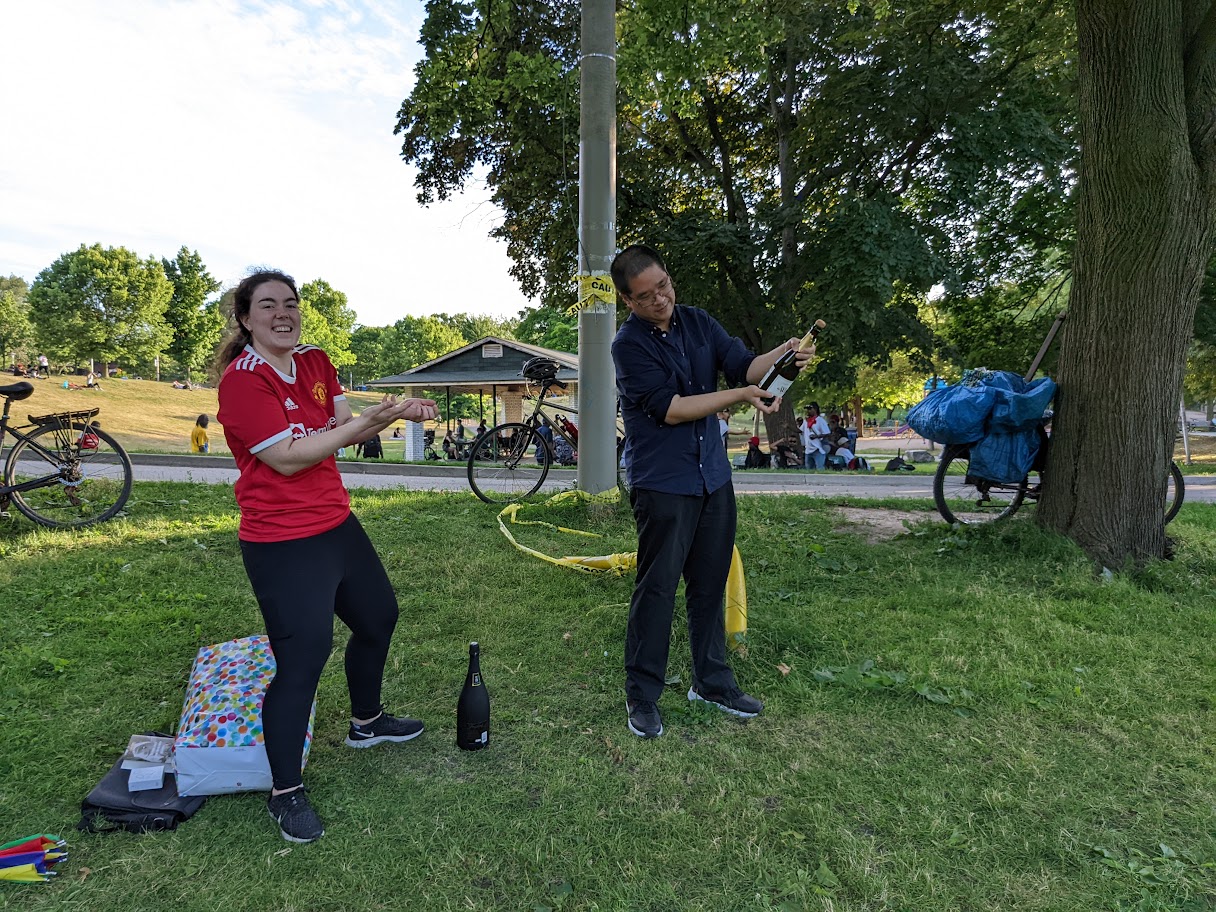
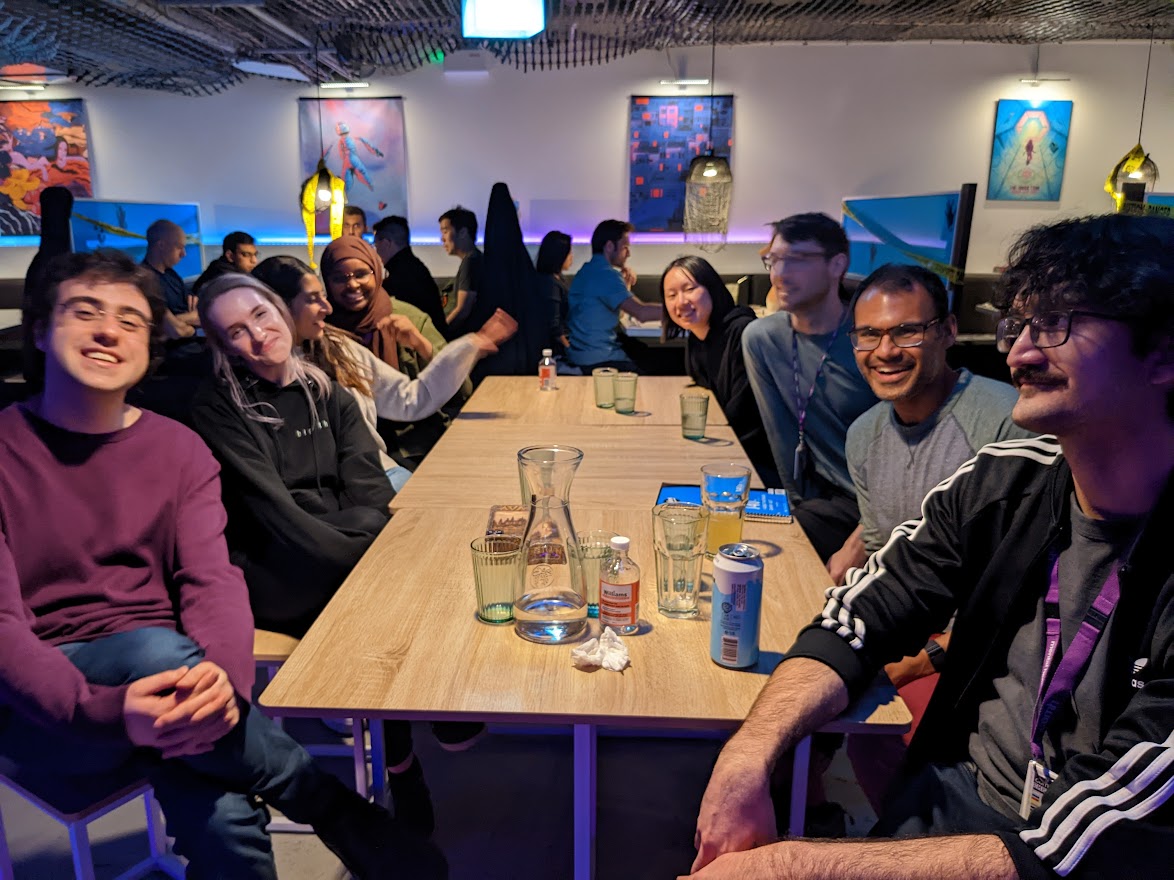
Not a “new lab” anymore
On a personal note, this past year I finally stopped feeling like a “new PI”. I still don’t feel like I know what I’m doing, but it feels like I have less of an excuse now. And sometimes, I actually do know things, and don’t hesitate making suggestions to others (my trainees, other PIs, etc).
This was the first year I experienced just how much of a change it can be when folks move on from the lab to new opportunities. Last summer, Isabel and Sonny told me on the same day that they had both accepted amazing job opportunities and were starting them relatively soon. I was simultaneously thrilled but also terrified at the prospect of running the lab without them. And it’s been quite an adjustment since they’ve left as they contributed to so much of the lab’s great dynamic and cohesiveness. We’re getting by and folks in the lab have really stepped up, but there’s just no replacement for one or two people taking it upon themselves to be the glue that holds the lab together. And this is something I’m finding myself actively thinking about when hiring now.
These days, I’m feeling the pressure to apply for grants, especially bigger ones like CIHR Project grants. We’ve done a lot of great science over the last few years and have a ton of preliminary data and ideas for further exploration, but I’m a little scared of having to write all this up and explicitly advocate for more funding. A lot of my lab’s approach to science thus far has been to work on different things that we find interesting and “see what sticks”. That approach has worked well for us but it differs from the more structured approach needed for traditional large grant proposals. I’m confident we’ll figure it out and I know writing grants will be ultimately good for helping synthesize our ideas and distill our plans, but it’s still daunting.
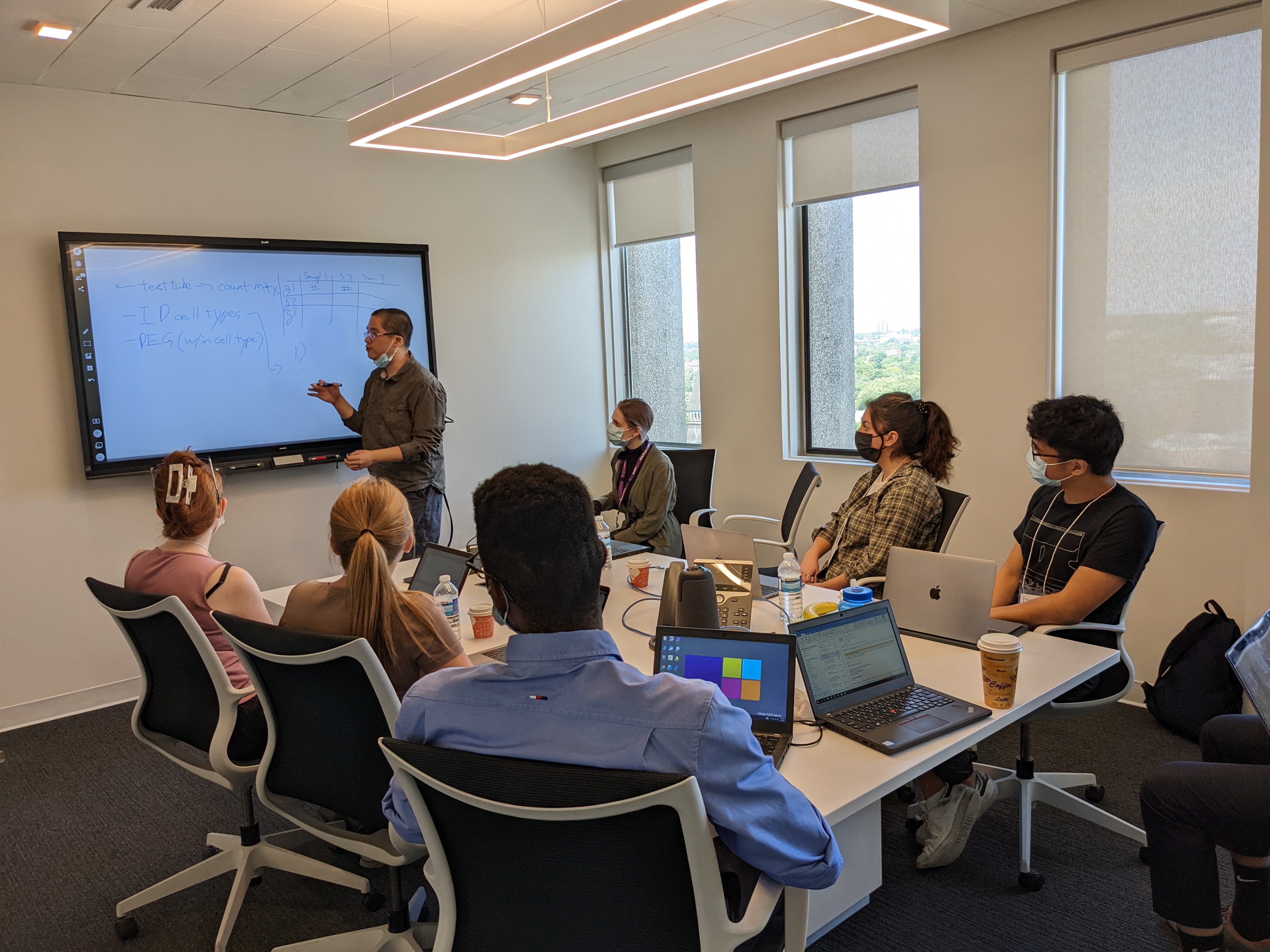
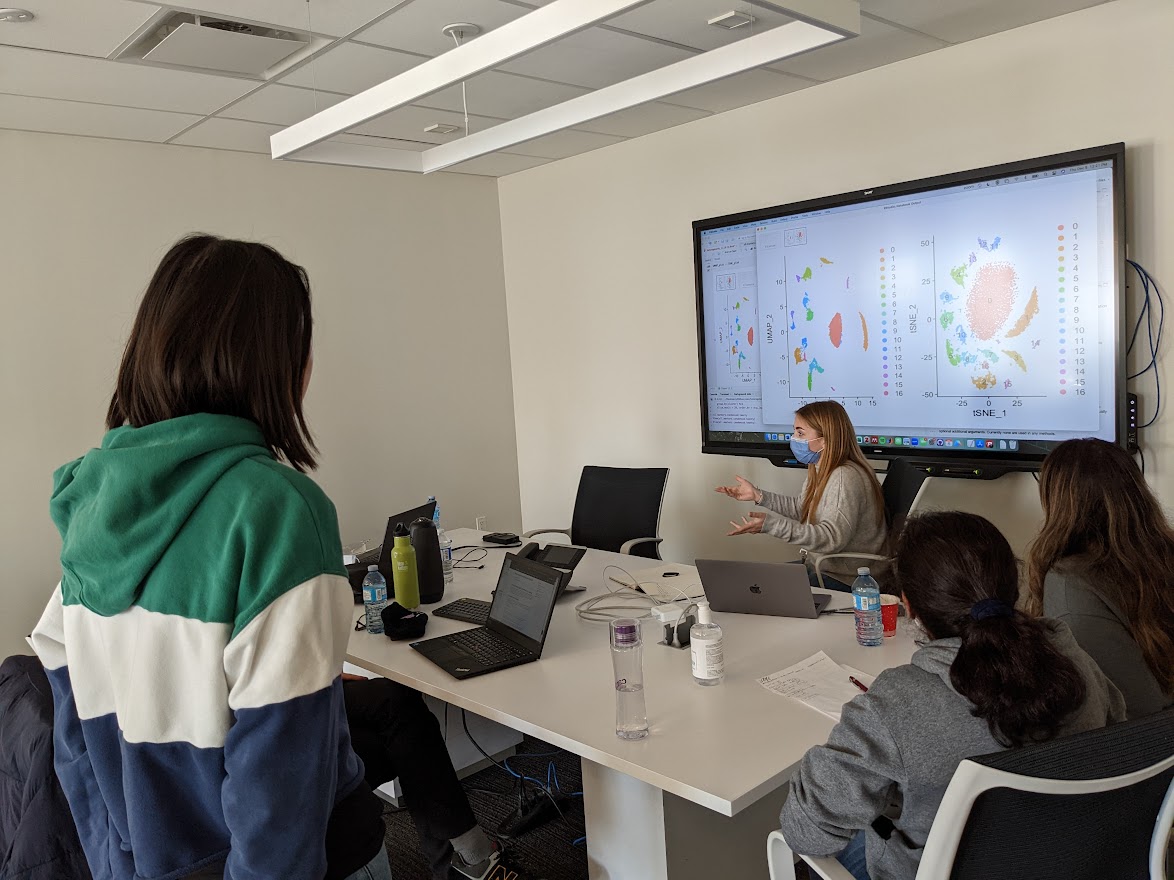
TripLab 2.0
Compared to my first few years (2019, 2020, 2021), looking forward over the next year or so, I’m eager to continue doing really exciting basic science stuff, but I’m finding myself more drawn to projects that might also have a more immediate clinical or translational component. We’re part of a couple recent efforts at CAMH, including some related to personalized medicine, that I’m really excited about.
I’m grateful these days to feel a little less pressure to fight tooth and nail for the future viability of the lab. I’m thinking more about how we can improve the lab for the long term, like how we can continue to attract the best and most diverse talent. I’m also actively looking for ways I can teach more - which I really love and would like to do more of.
As the pandemic approaches endemicity and lockdowns (hopefully) become a distant memory, I’m hopeful that we won’t forget everything we’ve learned over the last few years. For me, one of the lasting lessons is the importance of mental health. I think everyone’s mental well-being suffered (at least a little bit) as we all had to manage stress and anxiety and fear. Like a lot of people, I developed some really unhealthy coping strategies, like drinking too much and overeating, and it wasn’t until my wife mentioned it to me that I realized these habits were actually making my sleep and anxiety much worse.
But I think the silver lining is that the pandemic has brought mental health to the forefront. I’m pleasantly surprised by just how open folks are these days with discussing their experiences and struggles and even the ups and downs of their journey getting treatment. It really does feel like mental health is (finally!) becoming destigmatized and I look forward to this continuing in the future.
